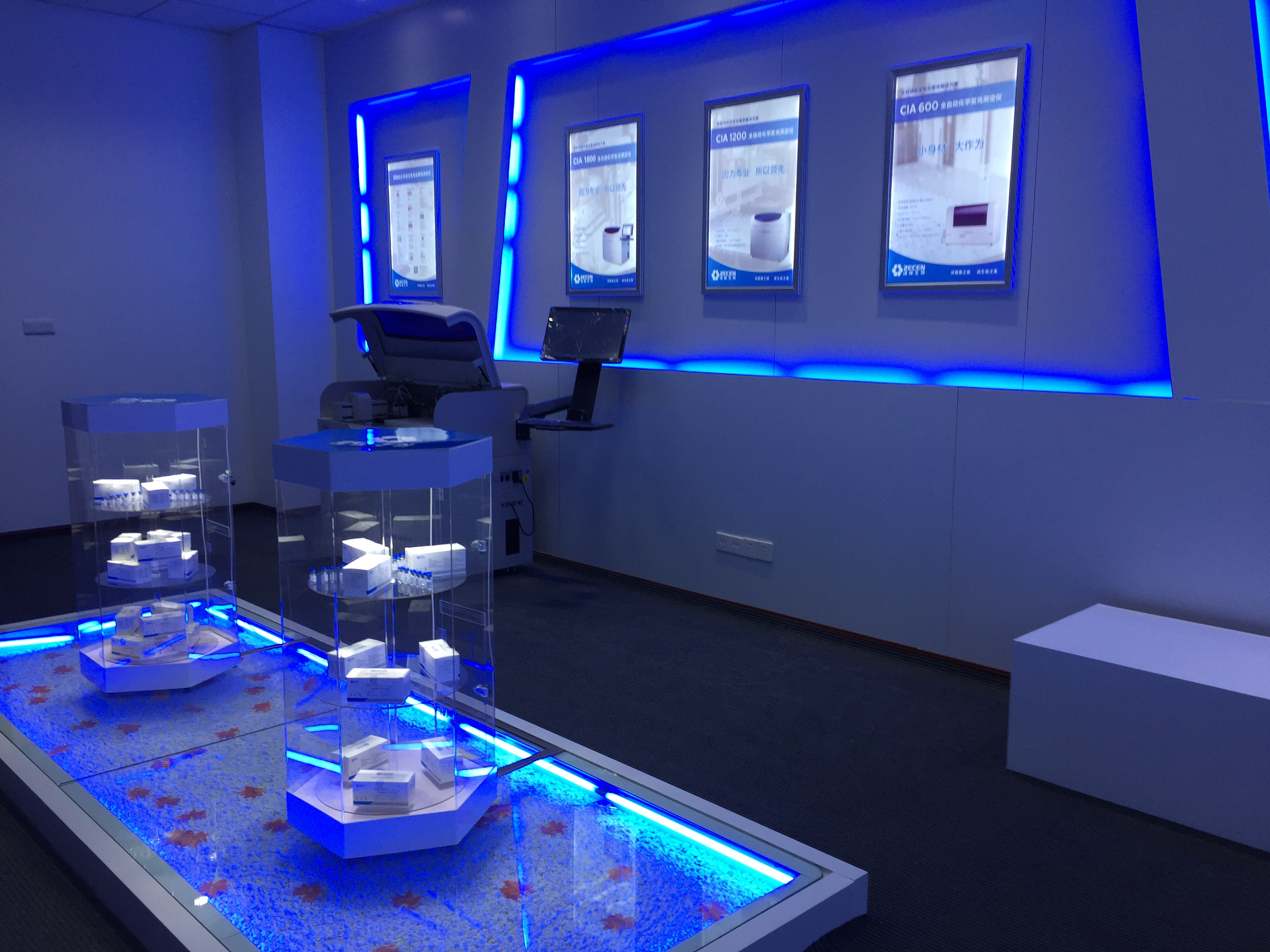| Sign In | Join Free | My frbiz.com |
|
| Sign In | Join Free | My frbiz.com |
|
| Categories | IVD Products |
|---|---|
| Brand Name: | Zecen |
| Model Number: | TNF-α |
| Certification: | CE, ISO13485 |
| Place of Origin: | China |
| MOQ: | 10 boxes |
| Payment Terms: | L/C, D/A, D/P, T/T, Western Union, MoneyGram |
| Supply Ability: | 5000 Set/Sets per Month |
| Delivery Time: | 15 working days |
| Packaging Details: | Carton package |
| Name: | TNF-α |
| Analyzer: | CIA series |
| Principle: | Enzymatic chemiluminescence |
| Luminescent markers: | AP(alkaline phosphatase) |
| Calibrator: | For Free |
| Storage: | 2-8°C |
| Material: | Magnetic beads, calibrators, Anti A/B, controls |
| Validity period: | 18 months |
| Precision: | ≤8% |
| Company Info. |
| Taizhou Zecen Biotech Co.,Ltd. |
| View Contact Details |
| Product List |
Macrophage cytotoxin;DifferentiaTumour necrosis factor-α,TNF test kit Tumor Maker Assay for Clinical In Vitro Diagnostic
CLIA Reagents of Tumor Maker(TNF-α)
| Test Item | TNF-α |
| Luminescent Principle | Enzymatic chemiluminescence |
| Luminescent Markers | AP(alkaline phosphatase) |
| Specification | 100 Test/Kit for CIA series |
| Principle | Sandwich method |
| Component | Magnetic Beads |
| Calibrator Low | |
| Calibrator High | |
| Anti-A/Anti-B | |
| Control 1 | |
| Control 2 | |
| Accessories Required But Not Provided | Substrate |
| Washing solution | |
| Sample material | Serum/Plasma/Whole Blood |
| Storage | 2-8℃ |
TNF and clinical
1.1 Application in tumor therapy
TNF exhibits tumor-killing or tumor-suppressing effects and
immunomodulatory activities in human and murine tumor cell lines or
primary cultured human cancer cells, as well as in tumor-bearing
nude mice. Most of the application of TNF in the treatment of
tumors is still in the clinical trial stage. It can also be
combined with IL-2 to treat tumors. Currently, it is believed that
the efficacy of systemic drugs is not as good as that of local
drugs. The latter, such as intralesional injection, has high local
concentration and mild side effects. . In recent years, TNF gene
therapy has been used for clinical validation of tumors such as
melanoma. In addition, intrapleural administration of TNF can
significantly reduce or even completely eliminate cancer cells in
the pleural effusion of patients with metastatic gastric and breast
cancer.
1.2 Septic shock
It is currently believed that disseminated intravascular
coagulation and toxic shock caused by Gram-negative bacilli or
meningococcus are caused by bacterial endotoxin stimulating the
body to produce excessive TNF-α, causing fever, severe damage to
the heart and adrenal glands, respiratory and circulatory failure,
and even causing death, and its TNF level is positively correlated
with case fatality rate. The pathogenesis may be that TNF
stimulates endothelial cells, leading to inflammation, tissue
damage and coagulation. TNF is also an important factor in acute
liver necrosis. Peripheral blood cells in fulminant viral liver
failure induce TNF, and the activity of IL-1 increases, which is
related to the severity of the disease. The mechanism of
TNF-mediated endotoxic shock is still unclear. It is believed that
TNF can promote the production of IL-1 and leukotrienes by
phagocytes and endothelial cells, leading to DIC and endotoxic
shock. TNF antibodies (antisera or monoclonal antibodies) are
effective in preventing lethal endotoxic shock in mice, rabbits and
baboons.
1.3 Cachexia
TNF-α, also known as cachexia, can induce cachexia in the body.
1.4 The relationship between TNF and pathogens
TNF also has an antiviral effect similar to IFN, preventing the
synthesis of the early protein of the virus, thereby inhibiting the
replication of the virus, and has a synergistic antiviral effect
with IFN-α and IFN-γ. On the other hand, TNF induces HIV-1 gene
expression in T cells. TNF activates or induces NF-κB in
HIV-infected CD4+ cells, and NF-κB binds to the enhancer site of
HIV's long terminal repeat (LTR) and activates HIV genes, which may
be related to the pathogenesis of AIDS. The production of TNF-α in
monocytes of AIDS patients is increased, and the level of TNF-α in
serum is increased. In addition, TNF also exhibits antibacterial
and antimalarial efficacy.
1.5 Relationship with Rheumatoid Arthritis
TNF can be detected in the synovial fluid of patients with
rheumatoid arthritis, which is considered to be related to the
pathogenesis of arthritis. Various anti-inflammatory drugs can
reduce TNF production. Currently, there are TNF antagonists on the
market, such as etanercept, which can be used for the treatment of
active rheumatoid joints and active ankylosing spondylitis.


|